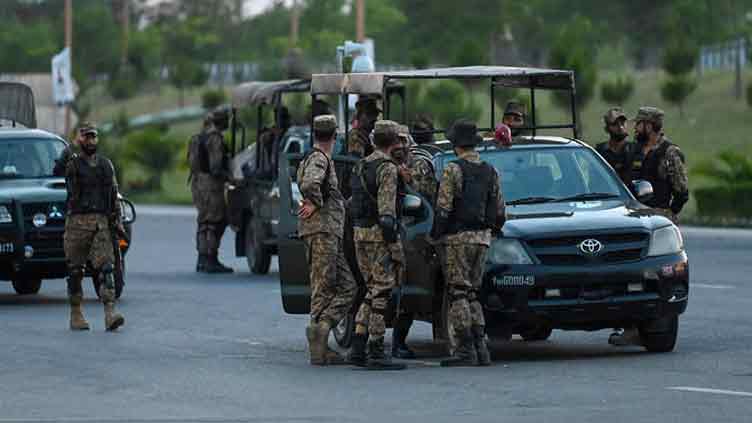Pakistani authorities are preparing to tighten security measures ahead of the Shanghai Cooperation Organization (SCO) summit, set to take place on Tuesday and Wednesday, as the country grapples with recent militant attacks and political unrest.
Senior regional officials, including Indian Foreign Minister Subrahmanyam Jaishankar, Russian Prime Minister Mikhail Mishustin, and Chinese Premier Li Qiang, are expected to attend the two-day conference.
In the weeks leading up to the summit, Pakistan’s authorities have cracked down hard on dissent, banning an ethnic nationalist movement and introducing new laws that restrict protests in the capital.
A deadly attack on a convoy of Chinese engineers in the major port city of Karachi last week has also deepened security fears in a country where separatist groups routinely target Chinese nationals.
The Baloch Liberation Army (BLA) claimed responsibility for the attack, which it said killed five Chinese nationals and at least 15 Pakistani security personnel. The Chinese Embassy confirmed that three engineers working at Bin Qasim Port were among the dead.
Imtiaz Gul, a security analyst and executive director of the Centre for Research and Security Studies, said the meeting holds great significance for a country that is “not seen as safe”.
“The government claims to have made elaborate security arrangements and understandably so because it has to make sure that the event passes off peacefully without any untoward incident,” he told reporters.
The SCO comprises China, India, Russia, Pakistan, Iran, Kazakhstan, Kyrgyzstan, Tajikistan, Uzbekistan, and Belarus – with 16 more countries affiliated as observers or “dialogue partners”.
All visiting member nations are expected to send government heads apart from Pakistan’s arch-rival India, who will dispatch its foreign minister in a rare visit to its neighbour.
Authorities have declared a three-day public holiday in Islamabad and Rawalpindi, starting on Monday, to reduce movement around the summit. The capital’s heavily fortified “Red Zone” has been bolstered with additional security, including roadblocks and razor wire.
Security concerns are particularly high as Chinese nationals have become frequent targets of attacks. China is a major investor in Pakistan, with billions of dollars committed to infrastructure projects, particularly under the China-Pakistan Economic Corridor (CPEC).
The Karachi bombing is the latest in a series of attacks on Chinese nationals, beginning in 2018 when the BLA targeted a convoy of Chinese engineers in Dalbandin, Balochistan. The BLA has warned China to end its involvement in the region, threatening more attacks if Beijing continues its support for Pakistan.
Following last week’s attack, the BLA released a video featuring Shah Fahad Badini, the suicide bomber who carried out the Karachi bombing.
In the video, Fahad delivers a message directed at the Chinese government, accusing China of exploiting Balochistan’s resources and supporting Pakistan’s military operations against the Baloch people.
“For years, you have turned a blind eye to the truth and have exploited Balochistan’s resources without legal or moral authority,” Fahad says in the video, warning that the BLA will continue targeting Chinese interests unless Beijing halts its involvement in Balochistan.
“This is your final warning. We will not stop. We will not give in. And we will not rest until Balochistan is free,” Fahad concludes in the video.

